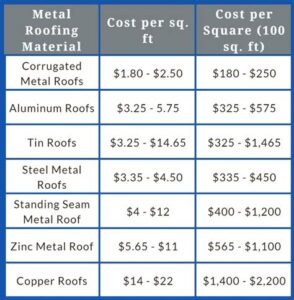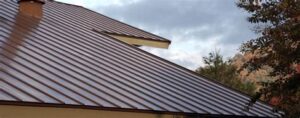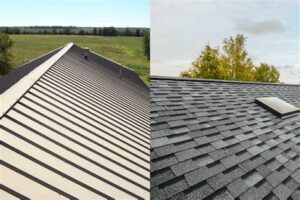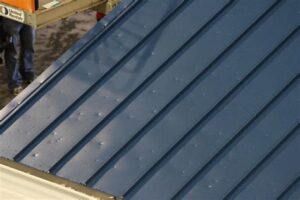In the ever-evolving world of roofing solutions, homeowners and businesses are constantly seeking the best materials to ensure longevity, cost-effectiveness, and sustainability. One option that has gained traction in recent years is polyturea roofing, a synthetic material known for its unique properties. But how does it really stack up against the traditional metal roofing? In this article, we’ll explore the pros and cons of polyturea over metal roofs, diving deep into key factors such as cost-effectiveness, durability, installation advantages, and environmental impact. By the end, you’ll have a clearer understanding of whether polyturea is the right choice for your next roofing project, helping you make a well-informed decision that meets your needs and values.
Understanding The Pros Of Polyturea Roofing
When considering roofing options, it’s essential to explore the benefits that each material brings to the table. In the case of polyturea roofing, there are several advantages that make it an attractive choice for homeowners and builders alike. Here are some of the key The Pros to consider:
- Seamless Application: Polyturea roofing is typically applied as a liquid, allowing for a seamless finish. This eliminates the possibility of leaks that can occur in traditional roofing methods, particularly at seams and joints.
- Rapid Curing Time: One of the standout features of polyturea is its quick curing time. Unlike metal roofs that may require extended installation periods, polyturea can often be fully cured within hours, reducing labor time and associated costs.
- Flexibility: Polyturea’s flexible nature allows it to expand and contract with temperature changes, making it less prone to cracking compared to rigid roofing materials like metal.
- Excellent Adhesion: This material adheres well to a variety of substrates, ensuring a strong bond that can withstand various environmental stresses.
- Resistance to Chemicals and UV rays: Polyturea demonstrates remarkable resistance to chemicals and UV damage, making it an excellent choice for industrial settings or areas with harsh environmental conditions.
- Low Maintenance: Once installed, polyturea roofing typically requires minimal maintenance compared to metal roofing, which may necessitate regular inspections and upkeep over its lifespan.
Given these advantages, polyturea roofing presents a compelling alternative to traditional materials like metal, appealing to those looking for durability, efficiency, and long-term savings in their roofing solutions.
Cost-Effectiveness: Comparing Polyturea And Metal Roofing
When evaluating roofing options, The Pros of cost-effectiveness between Polyturea and metal roofing are worth examining closely. While both materials have their advantages, the overall cost implications can significantly influence your decision-making process.
In terms of initial investment, Polyturea roofing systems typically come at a lower price compared to metal roofing. This is primarily due to the materials used and the relatively straightforward application process. Polyturea can be installed quickly, which not only reduces labor costs but also minimizes disruption to your daily activities.
Moreover, maintenance costs for Polyturea roofing tend to be lower. Unlike metal roofs, which may require periodic inspections and treatments to prevent rust or corrosion, Polyturea is highly resistant to chemicals, UV radiation, and even heavy foot traffic. Consequently, homeowners can expect fewer repair and maintenance services over time, leading to substantial savings.
It’s also important to consider the lifespan of both roofing materials. While metal roofs can last for several decades, the durability of Polyturea can rival that of metal when properly maintained. In addition, if any issues arise with Polyturea, repairs can often be conducted quickly without the need for full replacement.
To summarize, while the initial investment for metal roofing might appeal to those seeking longevity, the lower initial costs and reduced maintenance of Polyturea roofing present an attractive alternative. Evaluating both short-term and long-term costs will help determine which roofing material offers the best financial value for your specific needs.
Durability And Longevity: How Polyturea Stands Out
When it comes to roofing materials, The Pros of choosing polyturea over metal become particularly evident in terms of durability and longevity. Polyturea, a special type of polymer, is engineered to withstand the rigors of extreme weather conditions and other environmental stresses.
One of the standout features of polyturea roofing is its remarkable resistance to abrasions, impacts, and chemicals. Unlike metal roofs, which can be prone to dents and corrosion over time, polyturea maintains its integrity, ensuring that your investment lasts longer. This flexibility in the material allows it to expand and contract with temperature fluctuations without cracking, which contributes significantly to its long lifespan.
Additionally, polyturea is impermeable to water, which greatly reduces the risk of leaks and moisture damage. This waterproof quality means that homeowners will spend less on maintenance and repair costs, further enhancing the longevity of the roof. Unlike metal roofs, where rust and deterioration can occur at joints and seams, polyturea offers a seamless application that enhances its durability.
Many manufacturers offer warranties for polyturea roofing systems that span several decades, often exceeding those associated with metal roofing solutions, providing peace of mind for homeowners. With its exceptional performance, polyturea roofing proves to be a reliable option for both residential and commercial properties.
When considering the The Pros and cons of roofing materials, polyturea undeniably stands out in durability and longevity, making it a strong contender for anyone looking to invest in a long-lasting roofing solution.
Installation Advantages: The Pros Of Choosing Polyturea
When considering roofing options, one of the most significant factors to evaluate is the installation process. The Pros of opting for polyturea roofing are particularly compelling for both residential and commercial applications. Here are some key installation advantages:
- Quick Installation Time: Polyturea roofing can often be installed much faster than traditional metal roofing. This not only reduces labor costs but also minimizes disruption to your everyday activities.
- Seamless Application: The spray-applied nature of polyturea allows for a seamless application, which significantly reduces the chances of leaks and enhances waterproofing capabilities.
- Flexibility in Application: Polyturea can be applied to various materials and surfaces, making it an adaptable solution for different project requirements.
- Low Temperature Installation: Unlike metal roofing, polyturea can be installed in a wider range of temperatures, including colder months, ensuring that your project can stay on track regardless of the weather.
- Minimal Surface Preparation: The installation process generally requires less surface preparation compared to metal roofs, meaning fewer steps and less waste during installation.
These factors contribute to the overall appeal of polyturea roofing. The advantages in installation not only lead to a smoother process but can also enhance the long-term performance of the roofing system, making it a viable alternative to traditional metal roofing.
Environmental Impact: The Pros Of Polyturea Roofing Solutions
When considering roofing materials, one of the critical aspects to evaluate is the environmental impact. The pros of Polyturea roofing solutions present several eco-friendly advantages compared to traditional metal roofing. As sustainability becomes a focal point in modern construction, Polyturea emerges as a viable option for many homeowners and businesses.
Firstly, Polyturea is often produced with environmentally safe materials, minimizing harmful emissions during its application. This is crucial as the construction industry heavily influences air quality and ecosystem health.
Additionally, the application process of Polyturea involves sealing and waterproofing surfaces, significantly reducing the risk of water damage and runoff. This characteristic not only protects the building but also contributes to water conservation efforts by preventing leaks and wastage.
An important environmental aspect of Polyturea roofing is its energy efficiency. Many Polyturea membranes reflect sunlight, which helps to keep buildings cooler and reduces the need for excessive air conditioning. This energy efficiency can lead to lower utility bills and a reduced carbon footprint, making it a sustainable choice for eco-conscious consumers.
Furthermore, Polyturea is recyclable, which means that at the end of its life cycle, it can be repurposed rather than contributing to landfill waste. This aligns with the growing trend towards a circular economy, where materials are reused and recycled, minimizing environmental impact.
The pros of Polyturea roofing solutions regarding their environmental impact cannot be overlooked. With benefits such as eco-friendly production, water conservation, energy efficiency, and recyclability, Polyturea roofing stands out as an environmentally responsible choice for both residential and commercial properties.
Frequently Asked Questions
What is polyturea and how does it differ from metal roofing?
Polyturea is a hybrid coating that combines polyurea and polyurethanes, offering flexibility and durability. Unlike metal roofing, which is rigid and prone to rust, polyturea provides a seamless waterproof solution that can withstand extreme weather conditions.
What are the main advantages of using polyturea roofing?
Some key advantages of polyturea roofing include its elasticity, resistance to water and chemicals, quick application process, and the ability to extend the lifespan of existing roofs without costly replacements.
Are there any significant drawbacks to polyturea roofing compared to metal?
Yes, although polyturea has many pros, its main drawbacks include a higher initial cost compared to some metal options and the need for professional installation to ensure proper application, which may lead to higher labor costs.
How does the longevity of polyturea compare to that of metal roofing?
Polyturea can last anywhere from 10 to 20 years or more, depending on maintenance and environmental conditions, while metal roofs can last 40 to 70 years. Choose based on your long-term plans for the property.
Is polyturea environmentally friendly?
Polyturea can be considered environmentally friendly due to its longevity and efficient application that minimizes waste. However, the chemical components involved in its production should be evaluated for overall sustainability.
What factors should be considered when choosing between polyturea and metal roofing?
Consider climate conditions, budget, installation process, maintenance requirements, and overall aesthetic preferences when deciding between polyturea and metal roofing.
Can polyturea roofing be applied over existing roofs?
Yes, one of the advantages of polyturea roofing is that it can be applied over existing roofing systems, which can save time and money by extending the life of the current roof without the need for complete replacement.





